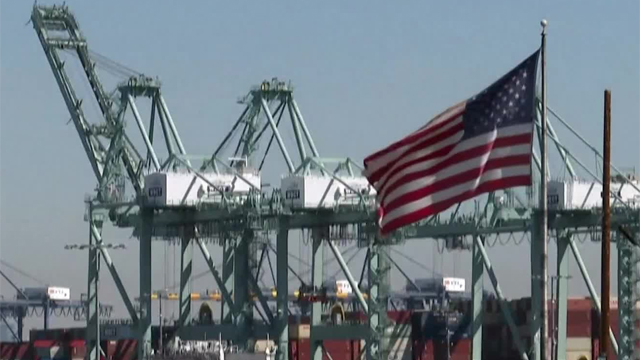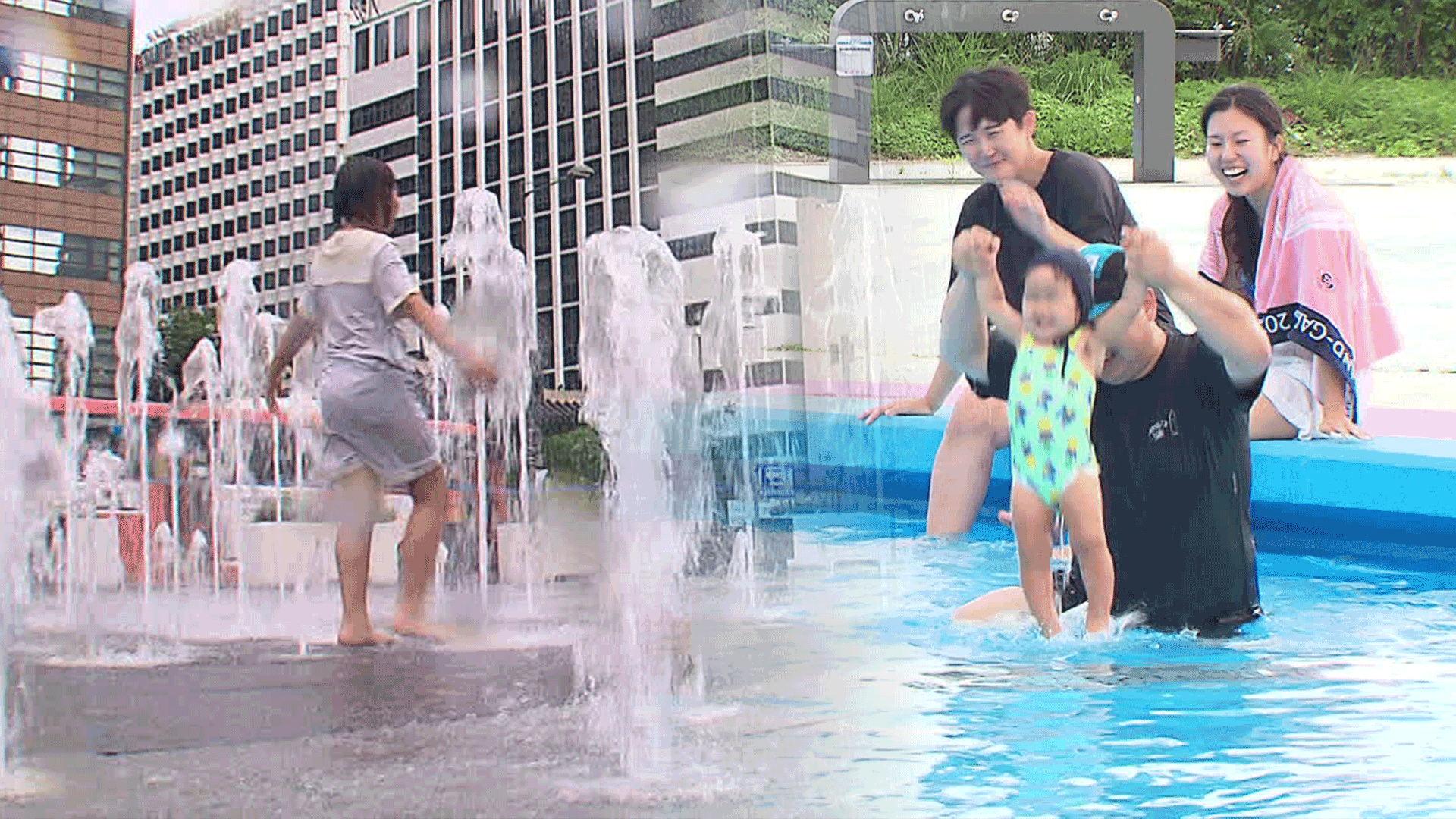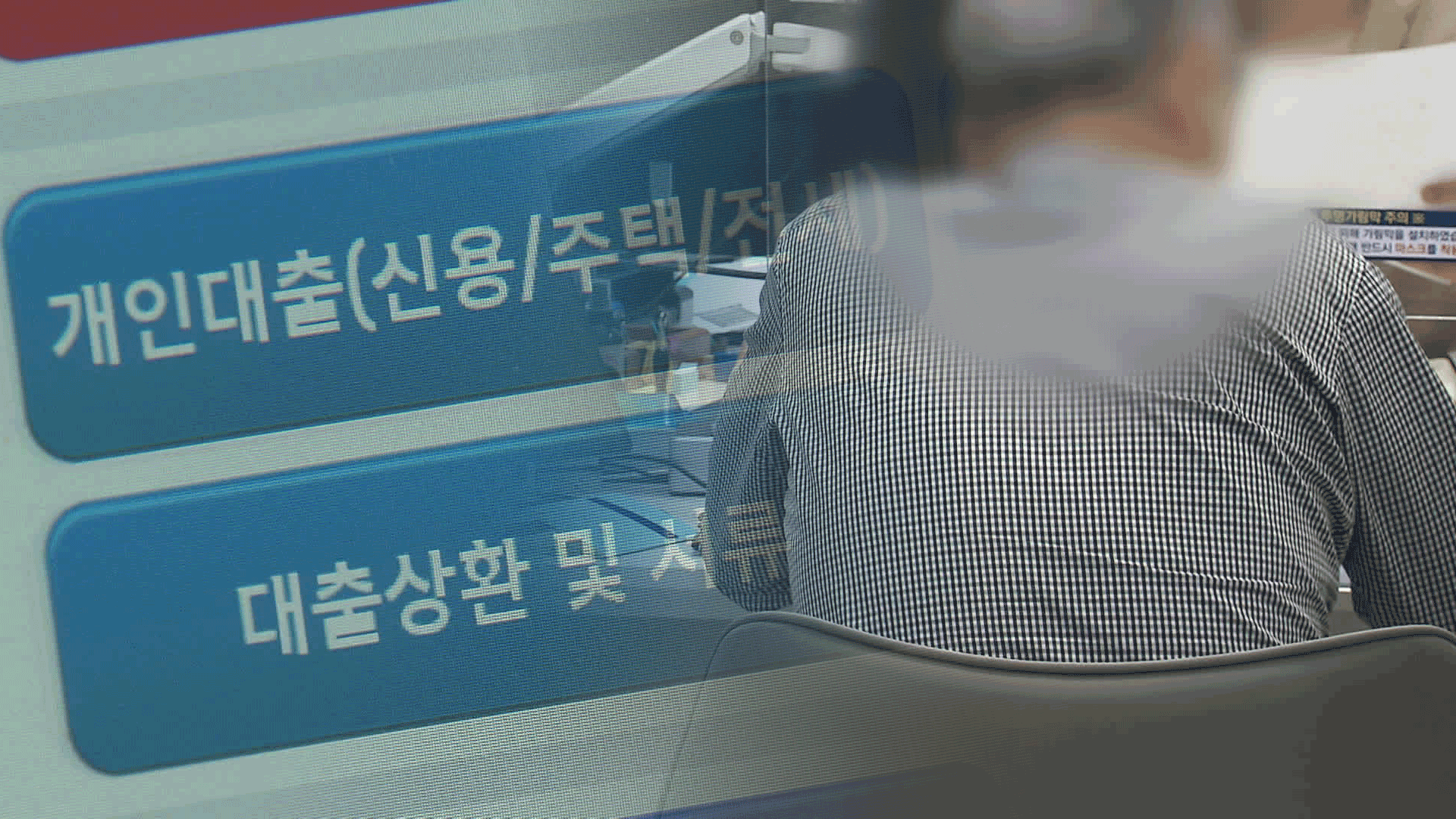RADIOACTIVE WATER RELEASE MEASURES
입력 2019.09.06 (15:37)
수정 2019.09.06 (16:57)
읽어주기 기능은 크롬기반의
브라우저에서만 사용하실 수 있습니다.
[Anchor Lead]
With Japan seeming to be poised to discharge radioactive water into the ocean, the Korean government is urging the international community for cooperation. Korea has already sent a letter to the International Atomic Energy Agency, and will search for ways to deal with the issue of Japan's radioactive contamination, at the IAEA general meeting slated for this month.
[Pkg]
Some 1.15 million tons of radioactive water are being stored at the Fukushima nuclear power plant. Its amount grows by 170 tons daily. The Japanese government says the country is expected to run out of storage facilities for contaminated water in three years. Japan's Nuclear Safety Commission insists that radioactive water must be discharged into the ocean. International environmental groups warn if that happens, the contaminated water might flow into the East Sea within a year.
[Soundbite] SHAUN BURNIE(NUCLEAR EXPERT FROM GREENPEACE(AUG. 2019))
The Korean government is poised to counter Japan's plan through international cooperation. Seoul has sent a letter to the International Atomic Energy Agency to express grave concerns over a massive environmental impact that water from Fukushima may have not only in neighboring countries, but in the marine ecosystem as well. In a keynote speech at the IAEA general meeting on September 16, Korea will try to build consensus on the threat posed by radiation and propose international on-site inspections in Japan.
[Soundbite] CHOI WON-HO(MINISTRY OF SCIENCE & ICT) : "We will stress the importance of the IAEA's role in the issue of radioactivity and urge its continuous and pro-active cooperation."
The Korean government hopes the IAEA will recommend a joint response to Japan's plan to release contaminated water, although the agency has no authority to impose regulations on certain countries. Seoul will also seek diplomatic cooperation with China, Russia and the U.S., which are also at risk of sustaining damage from Japan's contaminated water.
With Japan seeming to be poised to discharge radioactive water into the ocean, the Korean government is urging the international community for cooperation. Korea has already sent a letter to the International Atomic Energy Agency, and will search for ways to deal with the issue of Japan's radioactive contamination, at the IAEA general meeting slated for this month.
[Pkg]
Some 1.15 million tons of radioactive water are being stored at the Fukushima nuclear power plant. Its amount grows by 170 tons daily. The Japanese government says the country is expected to run out of storage facilities for contaminated water in three years. Japan's Nuclear Safety Commission insists that radioactive water must be discharged into the ocean. International environmental groups warn if that happens, the contaminated water might flow into the East Sea within a year.
[Soundbite] SHAUN BURNIE(NUCLEAR EXPERT FROM GREENPEACE(AUG. 2019))
The Korean government is poised to counter Japan's plan through international cooperation. Seoul has sent a letter to the International Atomic Energy Agency to express grave concerns over a massive environmental impact that water from Fukushima may have not only in neighboring countries, but in the marine ecosystem as well. In a keynote speech at the IAEA general meeting on September 16, Korea will try to build consensus on the threat posed by radiation and propose international on-site inspections in Japan.
[Soundbite] CHOI WON-HO(MINISTRY OF SCIENCE & ICT) : "We will stress the importance of the IAEA's role in the issue of radioactivity and urge its continuous and pro-active cooperation."
The Korean government hopes the IAEA will recommend a joint response to Japan's plan to release contaminated water, although the agency has no authority to impose regulations on certain countries. Seoul will also seek diplomatic cooperation with China, Russia and the U.S., which are also at risk of sustaining damage from Japan's contaminated water.
■ 제보하기
▷ 카카오톡 : 'KBS제보' 검색, 채널 추가
▷ 전화 : 02-781-1234, 4444
▷ 이메일 : kbs1234@kbs.co.kr
▷ 유튜브, 네이버, 카카오에서도 KBS뉴스를 구독해주세요!
- RADIOACTIVE WATER RELEASE MEASURES
-
- 입력 2019-09-06 15:44:24
- 수정2019-09-06 16:57:49

[Anchor Lead]
With Japan seeming to be poised to discharge radioactive water into the ocean, the Korean government is urging the international community for cooperation. Korea has already sent a letter to the International Atomic Energy Agency, and will search for ways to deal with the issue of Japan's radioactive contamination, at the IAEA general meeting slated for this month.
[Pkg]
Some 1.15 million tons of radioactive water are being stored at the Fukushima nuclear power plant. Its amount grows by 170 tons daily. The Japanese government says the country is expected to run out of storage facilities for contaminated water in three years. Japan's Nuclear Safety Commission insists that radioactive water must be discharged into the ocean. International environmental groups warn if that happens, the contaminated water might flow into the East Sea within a year.
[Soundbite] SHAUN BURNIE(NUCLEAR EXPERT FROM GREENPEACE(AUG. 2019))
The Korean government is poised to counter Japan's plan through international cooperation. Seoul has sent a letter to the International Atomic Energy Agency to express grave concerns over a massive environmental impact that water from Fukushima may have not only in neighboring countries, but in the marine ecosystem as well. In a keynote speech at the IAEA general meeting on September 16, Korea will try to build consensus on the threat posed by radiation and propose international on-site inspections in Japan.
[Soundbite] CHOI WON-HO(MINISTRY OF SCIENCE & ICT) : "We will stress the importance of the IAEA's role in the issue of radioactivity and urge its continuous and pro-active cooperation."
The Korean government hopes the IAEA will recommend a joint response to Japan's plan to release contaminated water, although the agency has no authority to impose regulations on certain countries. Seoul will also seek diplomatic cooperation with China, Russia and the U.S., which are also at risk of sustaining damage from Japan's contaminated water.
With Japan seeming to be poised to discharge radioactive water into the ocean, the Korean government is urging the international community for cooperation. Korea has already sent a letter to the International Atomic Energy Agency, and will search for ways to deal with the issue of Japan's radioactive contamination, at the IAEA general meeting slated for this month.
[Pkg]
Some 1.15 million tons of radioactive water are being stored at the Fukushima nuclear power plant. Its amount grows by 170 tons daily. The Japanese government says the country is expected to run out of storage facilities for contaminated water in three years. Japan's Nuclear Safety Commission insists that radioactive water must be discharged into the ocean. International environmental groups warn if that happens, the contaminated water might flow into the East Sea within a year.
[Soundbite] SHAUN BURNIE(NUCLEAR EXPERT FROM GREENPEACE(AUG. 2019))
The Korean government is poised to counter Japan's plan through international cooperation. Seoul has sent a letter to the International Atomic Energy Agency to express grave concerns over a massive environmental impact that water from Fukushima may have not only in neighboring countries, but in the marine ecosystem as well. In a keynote speech at the IAEA general meeting on September 16, Korea will try to build consensus on the threat posed by radiation and propose international on-site inspections in Japan.
[Soundbite] CHOI WON-HO(MINISTRY OF SCIENCE & ICT) : "We will stress the importance of the IAEA's role in the issue of radioactivity and urge its continuous and pro-active cooperation."
The Korean government hopes the IAEA will recommend a joint response to Japan's plan to release contaminated water, although the agency has no authority to impose regulations on certain countries. Seoul will also seek diplomatic cooperation with China, Russia and the U.S., which are also at risk of sustaining damage from Japan's contaminated water.
이 기사가 좋으셨다면
-
좋아요
0
-
응원해요
0
-
후속 원해요
0










![[HEADLINE]](https://news.kbs.co.kr/data/news/2019/09/06/4278246_10.jpg)






이 기사에 대한 의견을 남겨주세요.